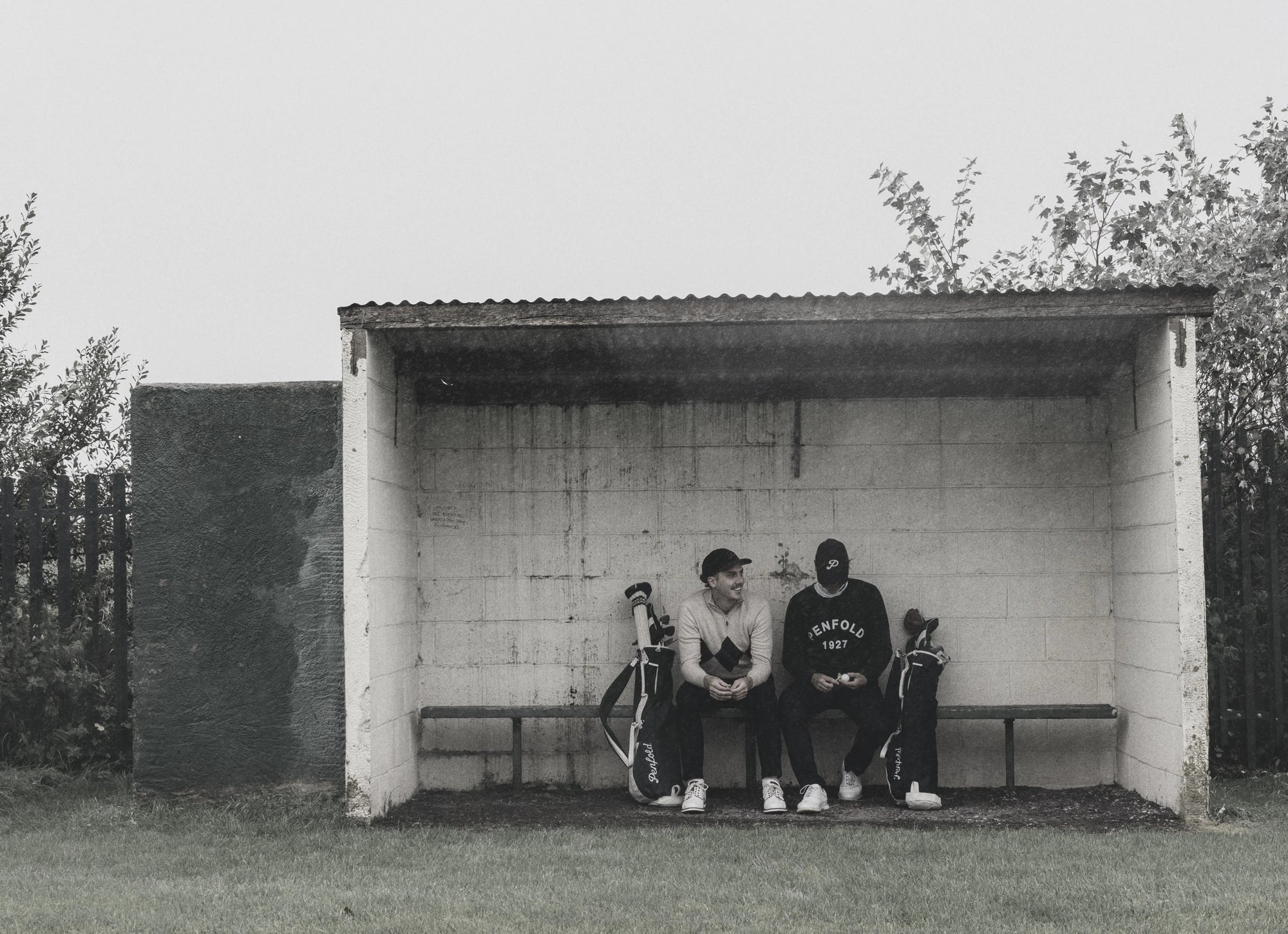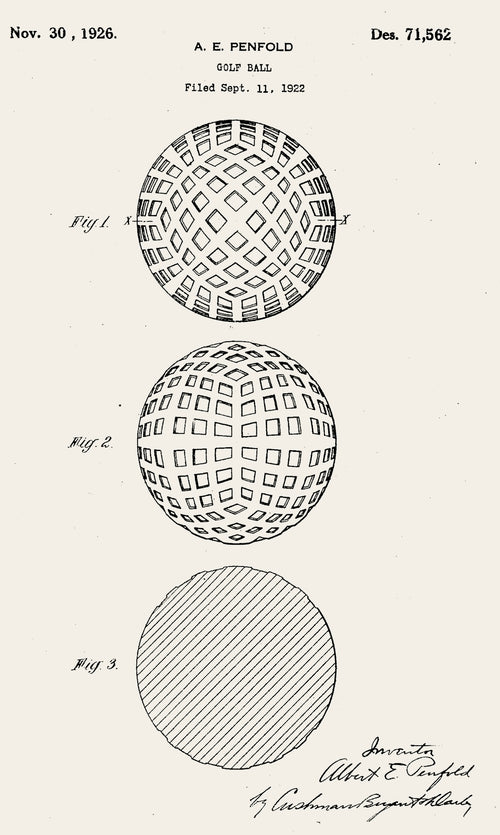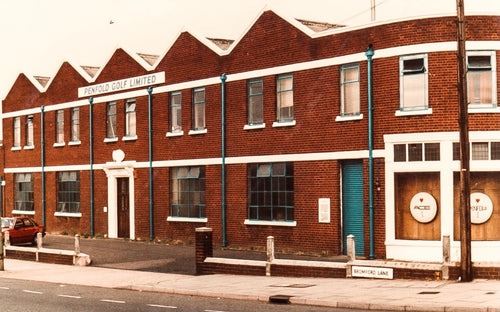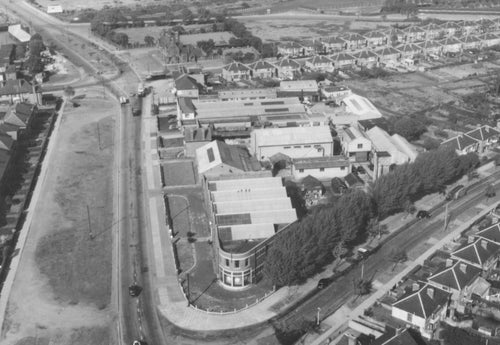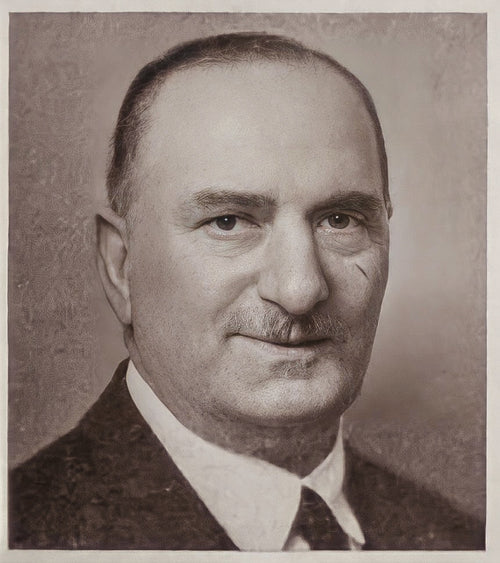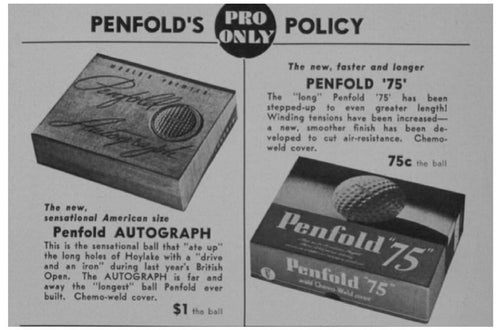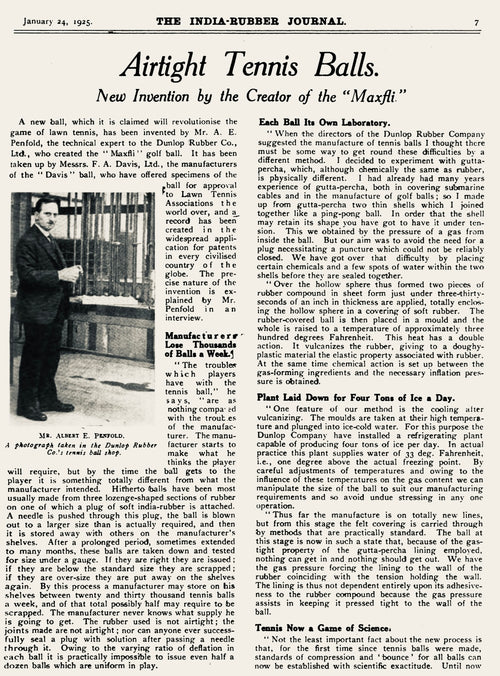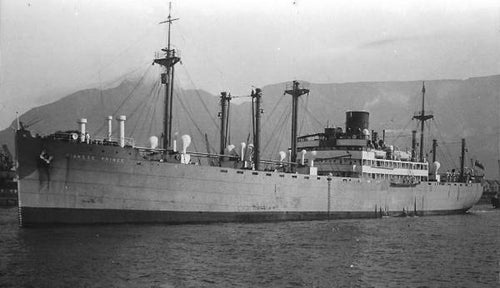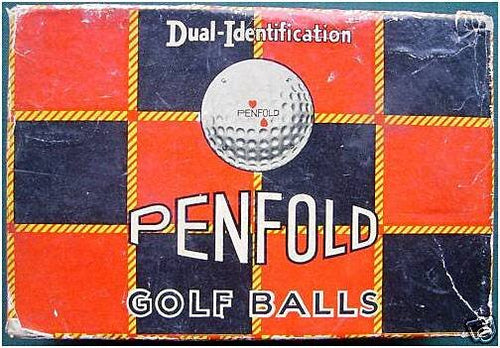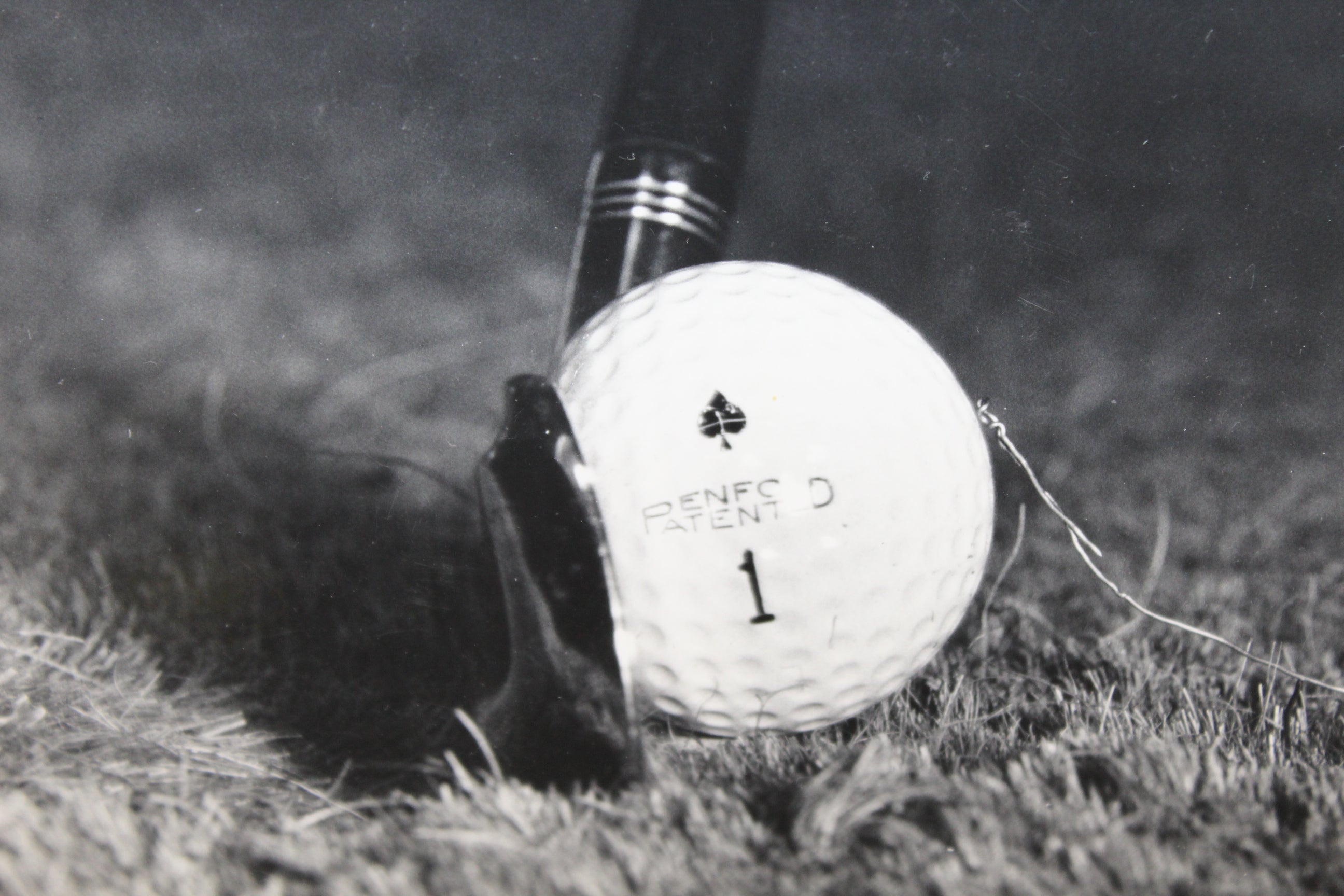Be the first to know about new collections and exclusive offers. Subscribe now for 15% off your first order
About Us
Founded in 1927, Penfold is an iconic brand in the game of golf. The British company has produced innovative golf balls, accessories, and equipment since our founder, A.E.Penfold, set up business in the Bromford Lane factory under Golf Ball Developments Ltd in Birmingham, England.
Penfold Golf is dedicated in continuing its legacy into the modern era, balancing both style and performance, all the while capturing nostalgia and paying tribute to the time-honored traditions of the game with high quality golf equipment, clothing, and accessories.
Knowing our story allows you to feel more connected to our brand, and part of the incredible history. Our past isn’t just a part of who we are, it defines our present, and our future.
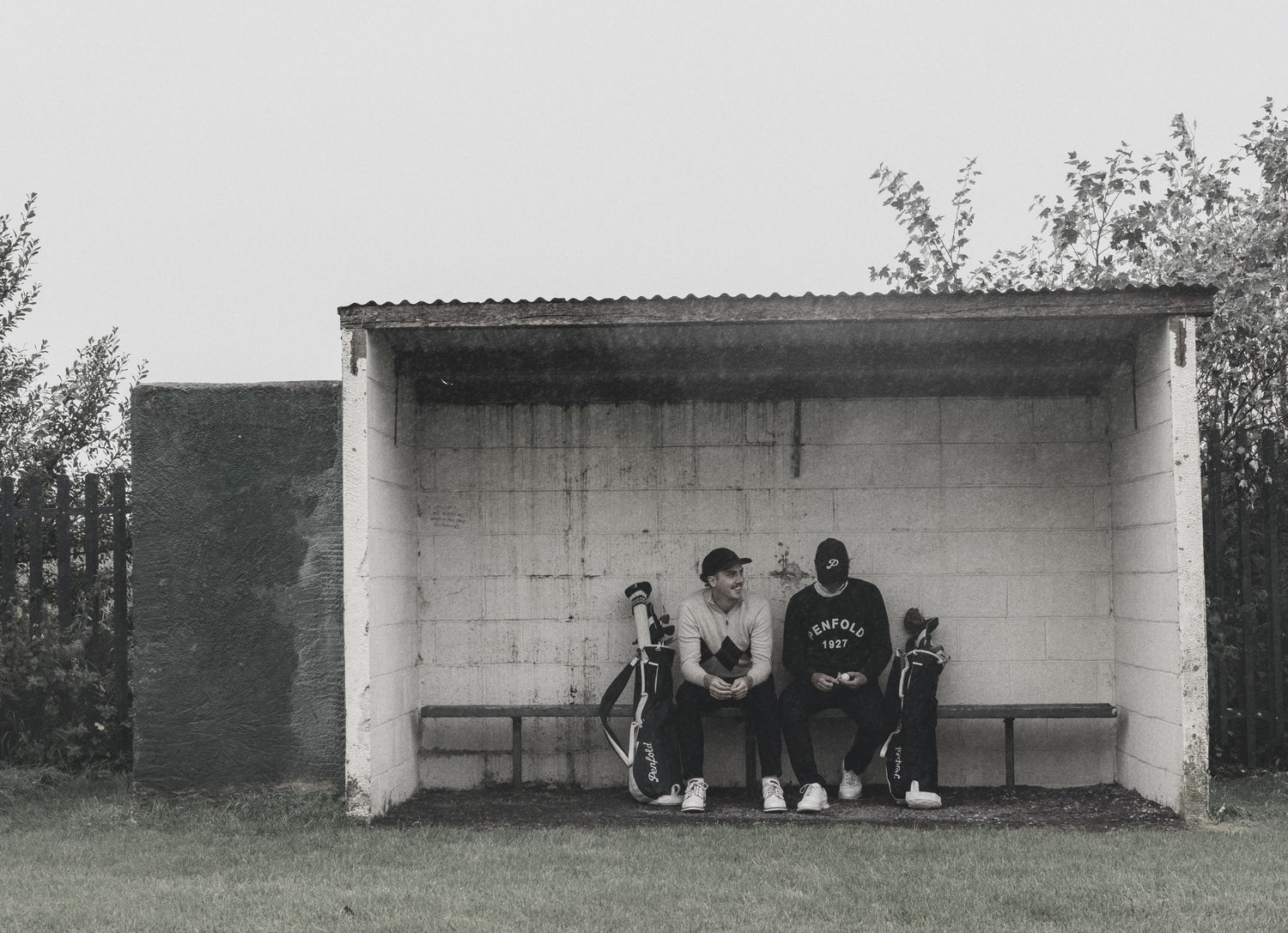
What set us apart is more than just golf equipment; it's a rich history, a tradition, and a narrative that distinguishes us from the rest. For every product we unveil serves a purpose - to narrate a story. Whether it's delving into the legacy of our founder, showcasing the journeys of our legendary staff players, highlighting the prestigious host clubs of the Penfold Tournament, or simply connecting with the profound history of the game we all cherish.
History and Heritage
Albert Ernest Penfold had been working for Dunlop, having designed the famous “Maxfli” ball. But in 1927, A.E.Penfold left Dunlop to form Golf Ball Developments Ltd at Bromford Lane, Birmingham.
Penfold balls began production after A.E.Penfold devised a winding technique which permits extreme tension of the rubber thread, creating accuracy and distance. In the 1930’s Penfold devised a winding technique which permits extreme tension of the rubber thread and unerring accuracy. The trick in winding is to prevent too many loops of the rubber thread crossing at exactly the same point.
Albert's journey in the golf industry was marked by milestones:
- Born in 1884, Albert started as an apprentice at the Silvertown company, where he revolutionized golf balls with a pure-white gutta-percha ball.
- In 1919, he joined Dunlop and, within three years, designed the famous Maxfli ball.
- In 1930, he met the R&A's challenge to develop a ball that met new specifications while outdriving others, resulting in the iconic Penfold ball.
- Albert's lattice balls thrived in the UK, offering longer carries due to the damper climate and softer fairways.
With the success of Penfold’s new ball, came tournament sponsorship. Penfold’s first major Open Professional Tournaments were at Royal Porthcawl GC in 1932 and 1933.
In 1935, Penfold expanded its reach, opening a manufacturing plant in Brooklyn, USA, becoming the first golf ball manufacturer with factories in both countries. To promote their products, Penfold created collectible papier-Mache figures of the "Bromford Man" and "Penfold Man".
In 1938, Penfold introduced the Penfold Professional Golf League, a prestigious tournament with substantial prize money. Albert foresaw changes in ball specifications and patented an American-sized ball in 1939, even though he opposed its introduction in England. Eventually, these larger balls became the
standard.
Tragically, on February 17, 1941, Albert Penfold was lost at sea when the Siamese Prince, the ship he was on, was torpedoed by a German submarine off the coast of Ireland. His legacy lived on through his son, A.E. Penfold Junior, known as "Dick".
During World War II, Penfold, like many manufacturers, contributed to the war effort. After Albert's passing, the Bromford Lane factory and machinery suffered destruction due to enemy bombings.
A Continuation of Excellence: The Era of Dickie Penfold following the war, Dickie Penfold made the decision to close the US factory and bring the machinery back to Birmingham to rebuild what had been lost to the bombings. Throughout the years, Penfold remained the ball of choice for celebrated golfers like Dai Rees. In 1949, Dickie Penfold provided tankards to Penfold Cup winners when replicas were unavailable due to the war.
The 1950s marked Penfold's ascent in the industry, with balls distinguished by card suits and the introduction of Penfold Dual-iD golf balls. In 1955, the Penfold RF-126, a round dimple ball, was endorsed by Sir Henry Cotton.
By 1960, Penfold became the first manufacturer to produce over one million golf balls in a year and made its mark at The Open Championship. The Penfold Ace, favored by professionals, gained popularity for its thin balata cover and tight wound construction.
In 1964, the Penfold Heart golf ball became iconic when Sean Connery's James Bond mentioned its use in "Goldfinger". After catching Goldfinger cheating, Bond brings a little gamesmanship of his own into play, switching Goldfinger's ball on the 18th fairway - Bond would state on the 18th green, "Here's my Penfold Hearts. You must've played the wrong ball somehwhere on the 18th fairway. We are playing strict rules, so I'm afraid you lose the hole and the match" - Goldfinger (1964).
The late 1960s saw the Bromford factory employing 500 people,
and Penfold introduced the Penfold Patented with a more resilient liquid center for the US market.
The 1970s continued Penfold's leadership in golf ball production, while Dick expanded the business into golf bags and gloves. In 1975, Dickie sold the company to the Colgate Palmolive Group, leading to further expansion into clubs and clothing. The Penfold name adorned prominent tournaments like the Penfold PGA Championship.
In 1975, Gary Player paid a visit to the Ladbrook Golf Club in
Birmingham, England, where he tested a new golf ball and took on the Penfold Robot, as he was under contract to play with the Penfold Ace. To foster junior talent, Player authorized the acquisition of the "Gary Player Cup" an annual competition. That same year, Penfold sponsored the PGA Championship on the then European Tour, held at Royal St. Georges, where the legendary Arnold Palmer emerged victorious.
This sponsorship continued into 1976 and 1977, with both events being held once again at Royal St. Georges. In 1976, Neil Coles of England secured the title, while Manuel Pinero of Spain claimed victory in 1977. Then in 1978, Nick Faldo achieved his first triumph using the Penfold GX100 at the Colgate PGA Championship held at Royal Birkdale.
In 1980, after years of challenges, the Colgate Group divested the golf ball business to Faulkner Sports, eventually leading to the management takeover by Penfold factory manager.
